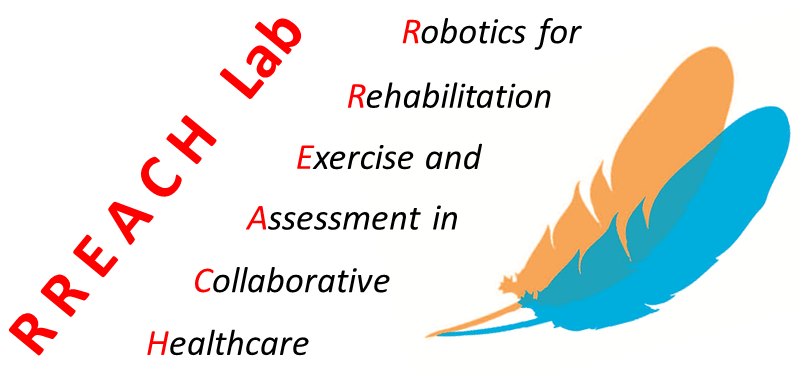
Therapy Robotics
The grand challenge in Therapy Robotics is to design the user experience so that the rehabilitation exercise becomes compelling, effective and sustainable. The CARIS Lab is working on several fronts in the areas of upper and lower limb rehabilitation for persons who are hemiparetic, for example as a result of cerebral palsy or a stroke. In one project (FEATHERS), we are combining social media, on-line games and orthoses with actuators to provide a motivating experience for young and older persons with hemiplegia. In another, we are exploring the use of physiological signal sensing to modify the difficulty of a physically challenging motor learning task in real-time, keeping the user engaged but not frustrated. In a third project, we are using an in-lab designed assistive Sit-to-stand testbed to study feedback methods for retraining standing in adults with lower limb weakness and/or hemiplegia.
FEATHERS: Functional Engagement in Assisted Therapy Through Exercise Robotics
We have assembled an integrated knowledge/technology/client team to develop a novel robot-based home therapy program for children with hemiplegic cerebral palsy and older persons post-stroke. Our community partners are two large local rehabilitation services institutions.
Stroke rehabilitation professionals acknowledge that about half of upper limb functional recovery after stroke is spontaneous. Any remaining recovery results from intensive, repetitive therapy over months of time, stimulating neuroplastic changes in the brain’s motor control pathways. From a human perspective, this is painful, frustrating and hard work. Sustaining a treatment over months requires significant doses of motivation and funding. Health plans do not provide sufficient coverage; motivation is highly dependent on a person’s support network and inner drive, and is often not adequately tapped.
We are combining low-cost robotic devices, a bimanual training program, social media frameworks such as Facebook Games, and on-line performance sharing between therapy clients and their therapists. This combination of components represents a best-practices approach to bidirectional knowledge transfer, development of technology and design of well-coordinated home-based therapy. We believe that together these approaches will yield interventions for people with stroke and children with hemiparetic cerebral palsy that significantly improve functional ability and lead to improved quality of life.




